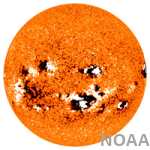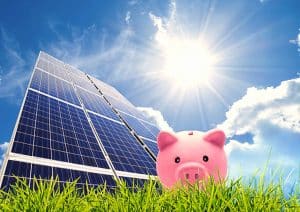Is this the worst nightmare of every solar power system owner, aside from a neighbour adding an extension or planting a tree that throws shade on their solar panels – is the sun running low on the juice that generates their electricity? Should they all buy more solar panels or go back to filthy, coal generated electricity?
Not quite.
Solar activity runs in 11 year cycles where energy generated by the Sun increases and then decreases. The Sun’s new solar cycle, which is thought to have begun in December 2008, will be the weakest since 1928 according to the NOAA/Space Weather Prediction Center.
The NOAA boffins believe that this solar cycle will be below average in intensity, with a maximum sunspot number of 90. Sunspots are patches on the Sun’s surface indicating major activity. The more sunspots, usually the greater the intensity of the sun. Given the predicted date of solar minimum and the predicted maximum intensity, solar maximum is now expected to occur in May, 2013.
For solar power system owners, these variations in the Sun are hardly noticeable; however, peak sun activity does threaten normal electricity infrastructure through solar storms. Solar storms are eruptions of energy ejected from the Sun and even a weak storm can wreak havoc on satellites and power grids, disrupting communications and electricity supply.
According to the NOAA, a recent report by the National Academy of Sciences determined if a storm of the intensity that was experienced in 1859 occurred today, it could cause USD $1-2 trillion in damages in the USA in the first year and require four to 10 years for recovery. The 1859 storm was so intense that it shorted out telegraph wires, causing fires in North America and Europe and produced northern lights so bright that people read newspapers at night.







































